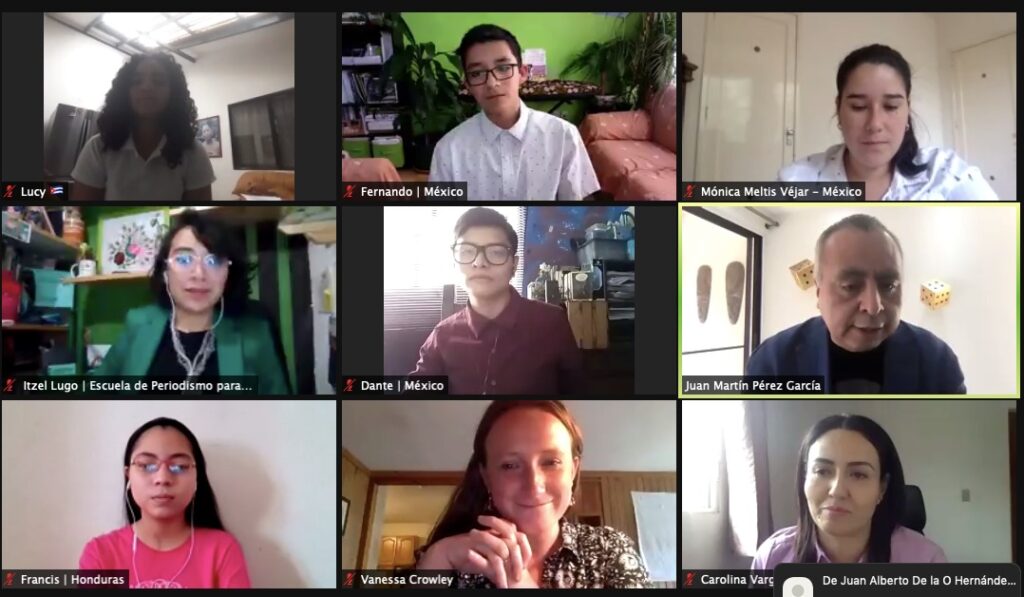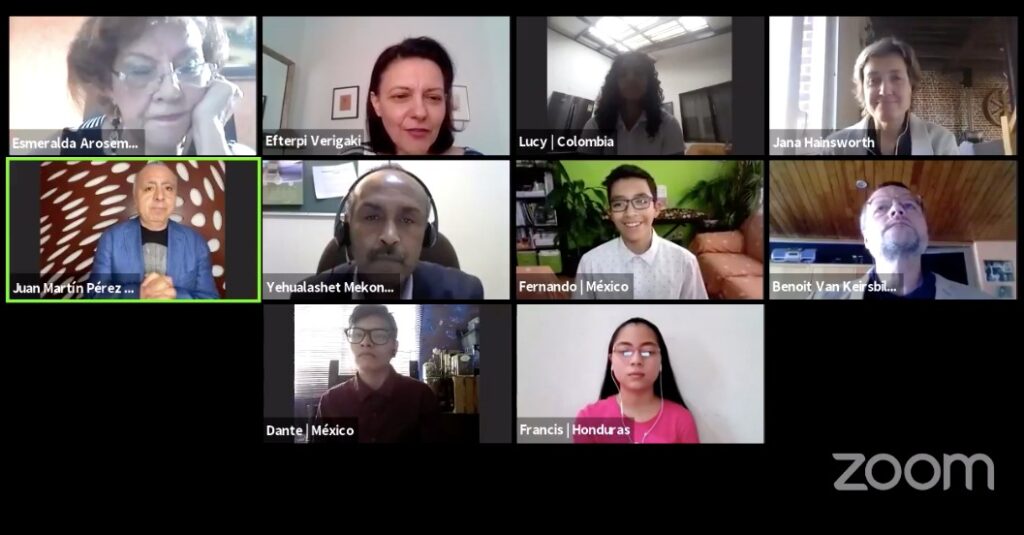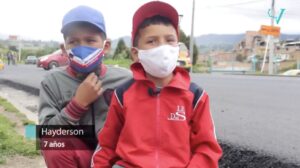- The Initiative Weaving Childhood Networks for Latin America and the Caribbean presented the Regional Observatory infantillatina.org in the framework of the Seminar where the challenges and opportunities to monitor the rights of Latino children were analyzed.
- The Regional Observatory seeks to provide information on the status of compliance with children's rights based on indicators, reports, publications, complaint and demand mechanisms, promoting the actions of comptrollership and citizen observation.
The launch of the platform infantillatina.org "Observatory for monitoring the rights of girls, boys and adolescents in Latin America and the Caribbean", occurs in an urgent context given the need to monitor and observe compliance with the Convention on the Rights of the Child (CRC), in order to create public policies that promote and guarantee the rights of children, especially in the face of the growing inequalities as a result of the COVID-19 pandemic.
In this space, Juan Martín Pérez recalled that the Regional Observatory seeks to make people know what and what the rights of children are based on indicators, reports, publications, complaint and demand mechanisms, promoting the actions of comptrollership and citizen observation .

Mr. Benoit Van Keirsbilck, Member of the United Nations Committee on the Rights of the Child, pointed out the importance of NGOs participating actively in the generation of reports and statistics, including the active participation of children and adolescents, as a As a follow-up mechanism for the Committee's recommendations, one of the greatest current challenges is for the recommendations issued to be translated into legislation that protects the rights of children.
From Brussels, Efterpi Verigaki, from the European Commission, pledged to continue sharing information and reports on the best practices that have positioned the European region as a pioneer in the implementation of mechanisms that promote and guarantee the rights of children, pointing to the youth as one of its priorities, with public policies that reinforce the participation and empowerment of young people, girls and boys.
Francis, a member of #NuestraVozCuenta and #NiñezObserva in Honduras, a group of young people who self-manage and prepare with an active role of observers and controllers, who also join the Latin Childhood Observatory, contributing their own point of view and research, thanked the develop this type of space that allows girls, boys and adolescents to exercise their rights.
In the panel “Contributions to the monitoring of children's rights from the international experience” participated Ilaria Paolazzi, Deputy Director of Child Rights Connect; Yehualashet Mekonen, Director of the African Child Observatory Program, African Child Policy Forum; Jana Hainsworth, Secretary General of EuroChild and Diana Laura, of Niñez Observa y Nuestra Voz Cuenta, Mexico.
Ilaria Paolazzi, made a call to empower children through research and measurement of the fulfillment of their rights, highlighting that the COVID-19 pandemic has shown us how fragile children's rights can be 30 years after the CDN, and that there are even countries that have implemented public health policies that violate the political and civil rights of children, such as the right to freedom of movement and the right to assembly.
Yehualashet Mekonen, explained that the African Observatory is currently working on accountability in favor of girls, boys and adolescents; through tools for monitoring compliance with State obligations and international treaties, given the diversity of childhoods that inhabit the region. He mentioned that thanks to the exercise of measurement and analysis of indicators, the gaps in the Continent have been reduced, although the figures for malnutrition and child abuse, particularly against girls, continue to be alarming.
For Jana Hainsworth, from EuroChild, before the pandemic there were already situations of inequality in childhood, but that the health crisis has been an opportunity to renew attention to the rights of the Child and to listen more to the demands of children, around your rights.

Diana Laura, representative of Niñez Observa, in Mexico asked for the support of governmental and civil organizations to promote proposals made by children, she hopes that their voices will continue to make an uproar, she said.
The second panel “Challenges and opportunities for monitoring the rights of children, adolescents and youth in Latin America and the Caribbean” was made up of Esmeralda Arosemena, Rapporteur on the Rights of the Child of the Inter-American Commission on Human Rights; Víctor Giorgi, president of the Inter-American Institute for Children and Adolescents and Lucy from Nuestra Voz Cuenta y Niñez Obs, Colombia.
Esmeralda Arosemena, began her participation by saying that childhood and adolescence have given us a cry of a new reality to change the world in defense and demand of the rights of children. He pointed out that the challenge is to give them spaces so that the incidence in the protection of their rights becomes a reality. The challenge for the authorities is to recognize them as holders of rights and protagonists of change.
Regarding the importance of information when defining public policies and monitoring degrees of compliance with the CRC, Víctor Giorgi mentioned that the current challenge in the Latin American region is to produce data where there is a void and opacity, due to the lack of political will to provide reliable, comparable and real-time information, without using averages, since this practice hides and makes it invisible. To end the panel, Lucy from Colombia said the following: "We adolescents must empower ourselves to help children, we are leaving a mark in every space that we are allowed to be in."
The last panel "Contributions to the monitoring of children's rights from journalism and activism" was made up of Dariela Sosa, Deputy Director of the International Center for Journalists (ICFJ), Itzel Lugo, Coordinator of the School of Journalism for Girls and kids; Mónica Meltis, Executive Director of Data Cívica, Mexico and Fernando de Niñez Observa y Nuestra Voz Cuenta.
The communication and journalism specialists agreed that with the journalistic exercise the state of compliance with children's rights can be made visible, use the data to generate valuable information in their countries and regions, establish dialogue with children and adolescents, eliminate ignorance and prejudices harmful to society, building and telling stories from the perspective and language of young people and children, using information technologies to make the voices of girls, boys and adolescents heard, recognizing and eliminating adult-centered behaviors, but above all to build fairer and more egalitarian societies.
Finally, Dante, from Mexico, spoke about the implications of Latino children in this type of initiative, he assured that they impact society and invite young people to political action and assume themselves as protagonists in the defense and promotion of their rights.
Watch the transmission of the event, on the social networks of Ollin.Tv: (https://www.facebook.com/Ollin.tv/) and get to know the promotional video for Infancia Latina:


